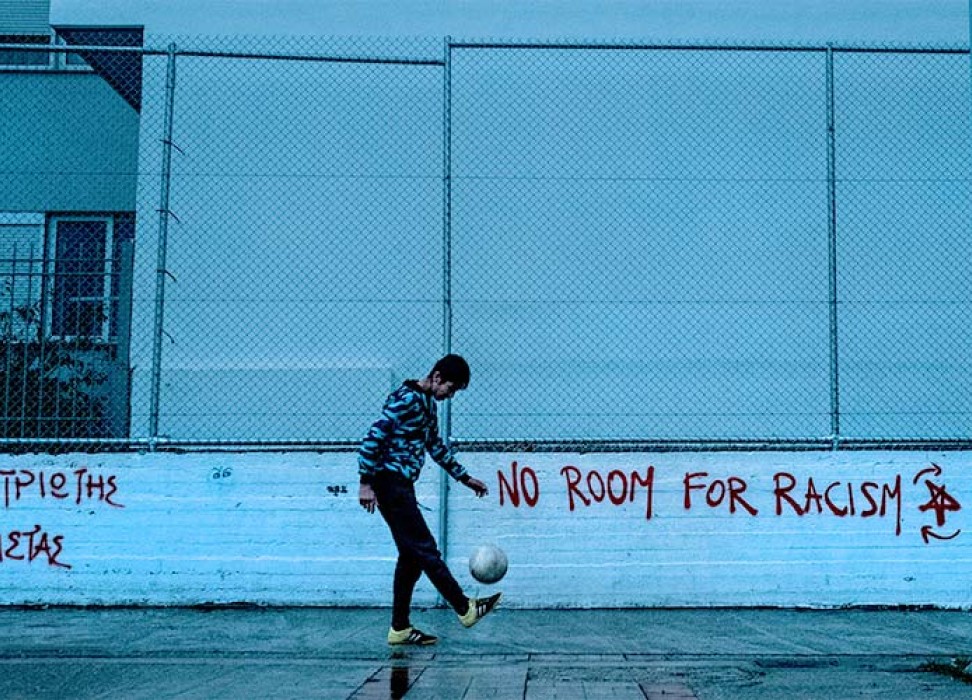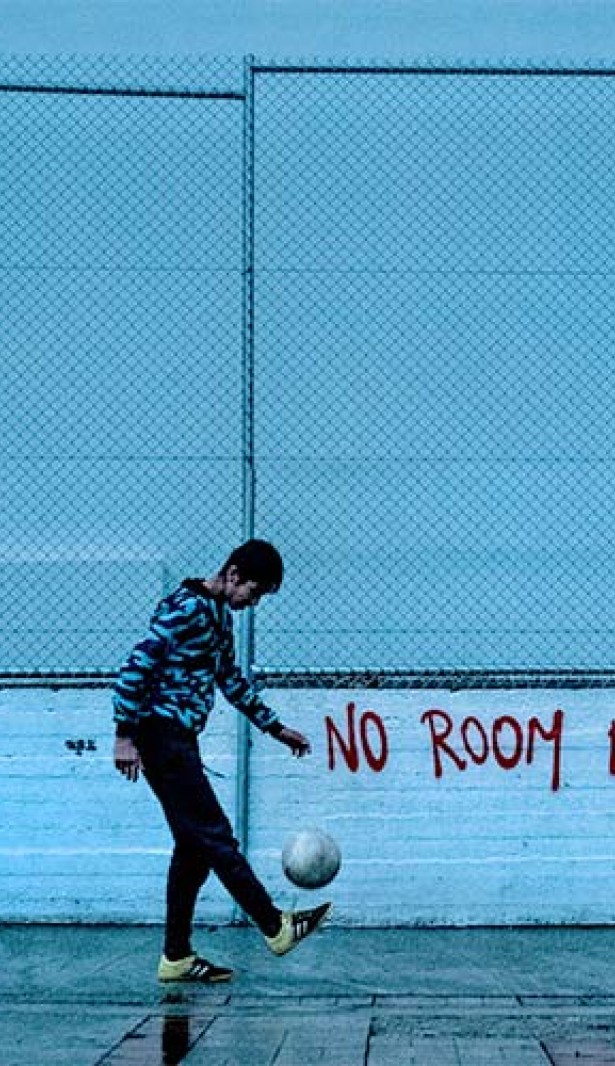Centre puts human rights and sports on same team
29 June 2018

The World Cup, currently taking place in Russia, provides a perfect reminder of the unifying power of sport, said UN High Commissioner for Human Rights Zeid Ra’ad Al Hussein.
“The World Cup provides a helpful backdrop and reminds us why sport has become so important, a markers of energy, commitment, skill, cooperation and respect. It is a place where peoples and nations can come together,” he said.
It was against this backdrop of a mega-sporting event that Zeid helped to launch the Centre for Sports and Human Rights. The Centre, which will be based in Geneva, will work with all sides involved in sport and human rights to build capacity, share knowledge and help strengthen and shape ways to improve transparency and accountability. The Centre’s goal is to be a driving force in transforming the global landscape of all sports to align with international human rights standards.
Sport has a unique ability to attract and inspire people. But particularly mega events can have negative impacts on the communities and people, generating human rights risks. For example, building a new stadium for an event can lead to forced evictions of communities, unsafe labour conditions in the construction of the facility or harassment and abuse based on gender, religion or race.
Guy Ryder, Director-General of the International Labour Organization (ILO) reminded launch attendees that “the industry not only depends on star athletes – who also have rights – but on the work of the millions who build the sports parks, construct the stadia, manufacture the panoply of sporting goods and provide the services and catering that make mega-sporting events possible.
“We have a duty to ensure that the freedom of sport is not built on the un-freedom of others.”
Centre Chair Mary Robinson, former UN High Commissioner for Human Rights, said the focus will be on developing practical resources that keep pace with the changing sporting landscape.
“The new Centre is the product of several years of development and collaboration by actors across the value chain of sport,” Robinson said. “Our collective vision is a world of sport that fully respects human rights. The Centre will be a public good, working with sports bodies, event hosts, affected groups, and others to share knowledge, build capacity, and strengthen accountability.”
According to David Grevemberg, Chief Executive of the Commonwealth Games Federation, which is a member of the Advisory Council of the centre, sport is seen as neutral ground, where affiliations like race, religion, nationality, are ignored in favour of the performance of athletes. Sport promotes friendships, human connection, tolerance and fair play, while developing positive attitudes towards our fellow human beings, he added.
“There are some who say such conversations around human rights politicises sport. I say it gives us a chance to make sports more human,” he said.
The centre is the next step in the evolution of the Human Rights and Mega-Sporting Events Platform. The platform, formed in 2016, brought together representatives of all those involved in a major sporting event – from players, to broadcasters, to international sporting bodies to sponsors and more – along with those involved in human rights to embrace and put into practice their human rights duties and responsibilities during the life cycle of a major sporting event.
“I view this independent Centre as an important step in scaling up our efforts to ensure that sports and mega sporting events are grounded in the Universal Declaration (of Human Rights) enduring message of respect for the equal dignity and rights of every human being,” Zeid said.
29 June 2018
